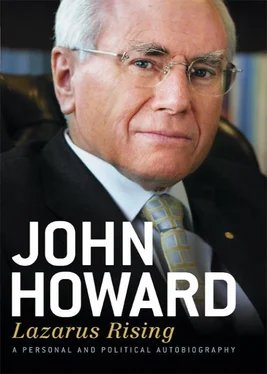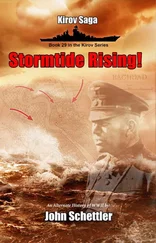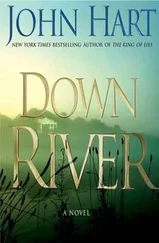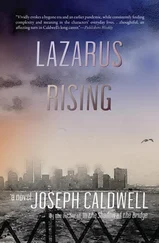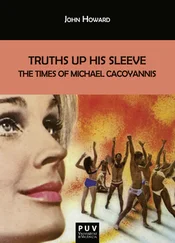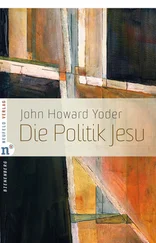The events of the early days of June 1987 may have ended the ‘Joh for PM’ push, but its ramifications would haunt the Liberal and National parties for some years into the future.
How did it all come about in the first place? As the Coalition in Canberra, and the Liberal Party in particular, struggled through the early part of 1986, there were murmurs out of Queensland that Joh Bjelke-Petersen, that state’s long-serving Premier, might take a tilt at Canberra.
Disunity within the Liberal Party and the constant speculation about my leadership encouraged anti-Labor people to believe that an alternative to the orthodox Coalition approach in Canberra was needed. Importantly, Andrew Peacock and Joh Bjelke-Petersen had a warm regard for each other. It stemmed from Peacock’s heavy involvement, as Foreign Minister, in negotiating with the Indonesian Government on border issues affecting Queensland. Joh liked Andrew, who was always ready to sing the Premier’s praises in public. There was also the Russell Hinze factor. Hinze, a senior Queensland minister, wanted to be state Premier, and to do that he had to get rid of Joh. How better to achieve this goal than to have Joh launch himself in a bid for Canberra, irrespective of the outcome?
Peacock and Hinze had a mutual love of horses, which brought them together. Hinze would frequently deride my standing in the polls, largely in private, but from time to time publicly. There is little doubt that through these difficult days Andrew Peacock was in communication with Joh and Hinze.
The Fraser years had also provided a hangover. At the beginning Fraser worked closely with the Queensland Nationals and incurred the enmity of Queensland Liberals such as Eric Robinson for being too close to them. This friendship soured. Bjelke-Petersen resented the Fraser ban on sand mining on Fraser Island. He thought Fraser was too friendly with Robert Mugabe and had little time for Fraser’s strong anti-South African stance.
Then there was the bottom-of-the-harbour tax legislation, which wounded many in Queensland’s so-called white shoe brigade. I learned this from comments made to me years later by people who were in a position to know. Many of them were strong financial backers of the Nationals in Queensland, and the Premier frequently mentioned this issue amongst his litany of complaints about the Fraser Government.
Also, by virtue of his intervention in federal politics regarding his Gair manoeuvre and the appointment of Patrick Field to the Senate, both of which hurt Whitlam, Bjelke-Petersen always felt that the federal Coalition owed him a lot.
One of the active proponents of Joh’s Canberra campaign was the developer Mike Gore, a fierce critic of my 1982 bottom-of-the-harbour laws. Many believe that Gore paid for research in 1986 by the Canadian company Decima, which allegedly showed that Joh being part of the anti-Labor push would add considerable value to the conservative cause across Australia. Gore had obtained special legislation from the Queensland Government for his Sanctuary Cove development. To Mike Gore, Joh could walk on water. Lake Burley Griffin would be no problem.
Joh Bjelke-Petersen was a rural populist. He placed a premium on development, often without too much regard for competition considerations. When it came to investment in Queensland and the economic growth of the state, he was a corner cutter. This approach achieved results and produced a buoyant Queensland economy, which lasted long after he had gone. Sometimes people were unreasonably enriched in the process, yet the state prospered. As Treasurer, I had several heated discussions with him about my insistence on Australian equity being involved in large coal projects.
Sometimes his preference was that the entirety of the projects should be owned by Japanese investors. His priority was investment in Queensland. I supported that too, but I wanted Australians to participate in that investment where Australian equity was available.
Like all premiers, particularly Queensland premiers, he was happy to beat the anti-Canberra drum. Finishing one very cranky telephone conversation with me regarding a foreign investment decision of mine, he said, ‘Why don’t you just leave us alone and let us run Queensland?’
The Australian newspaper became a prominent vehicle for the propagation of the Joh cause. The editor at the time, the late Les Hollings, gave huge coverage to anything that Bjelke-Petersen said or did. The paper’s editorial pages championed the causes of lower taxes and reduced union power. That was fine by me, but the underlying theme from contributors like Katherine West and Des Keegan was that I wasn’t quite up to the task and a person with the heft of Joh was needed.
These were all ingredients which led to the ‘Joh for PM’ campaign. They were not, however, the overriding reasons why it happened. In the end it happened because Joh Bjelke-Petersen himself believed that he could become prime minister. It was not rational, but it was real.
By 1987 he had been Premier of Queensland for 19 years. Australia had a federal Labor Government, and Labor was in power in all other states except Tasmania. Joh was a hero to people on the right and centre-right of politics, not only in his own state but elsewhere. He spoke with the authority of being in government. I spoke with the limitations of being an Opposition leader, and one who was under pressure within his own party.
Bjelke-Petersen had beaten Labor on numerous occasions. He had demoralised the Liberals in Queensland with his remarkable win in November 1986. Although some former National Party insiders say that Joh had resolved to tilt for Canberra before the 1986 election, his amazing victory removed serious doubts in his mind. Until then the possibility of the ‘Joh for PM’ campaign gathering traction was remote.
To win 49 out of the 89 seats in the Queensland parliament was a huge accomplishment for the National Party. A week out from that election a deadlocked parliament looked likely. The all-out National Party assault during the final week shifted many people who traditionally might have voted Liberal towards Bjelke-Petersen, in the name of having a stable, conservative government in Queensland. This victory persuaded him, and many around him, that he had broad vote-winning appeal, including amongst blue-collar Labor voters.
There was another simple reason why he turned his gaze to Canberra. 1986, despite the triumph it was, was his last state election. It became, therefore, a question of why not have a go for Canberra. In the atmosphere of Queensland politics after the election, such issues as the unlikelihood of his state popularity translating fully into the federal arena never occurred to his spruikers. There have been very few successful translations of successful state political figures into positions of equal power and prominence federally. Behaviour deemed popular, even loveable, at a state level becomes quirky and even embarrassing at a national level.
There was also the reality that many Liberals who happily declared their regard and support for Bjelke-Petersen whilst he was Queensland Premier had a completely different attitude towards the prospect that he might be the alternative to Bob Hawke as prime minister. As Christmas 1986 drew near, none of this seemed to matter. The victory in November had converted a fanciful dream into a tantalising possibility.
Until Bjelke-Petersen’s Queensland election victory, I did not judge that the ‘Joh for PM’ campaign, although distracting, would become a reality. Watching Joh’s victory speech that night in November 1986, my concern deepened. I said to Janette, who had watched it with me, ‘This is going to create terrible trouble for us.’
My concerns were realised almost immediately. In a post-election interview with the Australian on 3 November he said, ‘This time I won’t be working through them. They’ll work with the policies I set or I will work against them, and I’ve told them that.’ 1 Hinze had been even more direct: ‘We need a type of leader like Sir Joh in the nation,’ he said. ‘Howard tried to help Knox [the Queensland Liberal leader] and was not accepted. It’s a problem for the conservative parties in Australia, we have to find a new leader,’ he continued. 2 When pressed, he said that Andrew Peacock was one of the politicians capable of saving Australia.
Читать дальше
